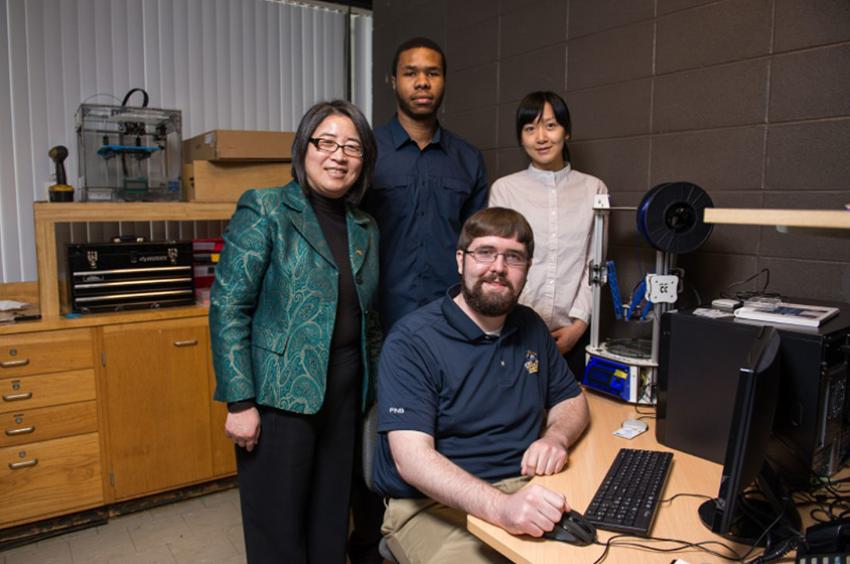National Science Foundation awards $79K to UMassD professors
Dr. Hong Liu & Dr. Trina Kershaw receive funding to support their collaborative research project that pilots creative approaches to graduate education and knowledge generation.

The National Science Foundation (NSF) has awarded Dr. Hong Liu and Dr. Trina Kershaw a $79,548 award for their collaborative research project “Innovations in Graduate Education: Graduate Education in Cyber-Physical Systems Engineering.” The NSF Innovations in Graduate Education awarded to UMass Dartmouth and UMass Lowell faculty members pilots creative approaches to graduate education and knowledge generation.
“The project uses case studies of cyber-physical systems (CPS) to prototype an educational model for co-creation of cross-disciplinary knowledge by teams of graduate students, research advisors, course instructors, and industrial practitioners,” says Liu, a Professor of Electrical and Computer Engineering at UMass Dartmouth’s College of Engineering. Cyber-physical systems integrate computing and networking of cyberspace with processing from physical systems. “For example, the monitoring and controlling loop of systems like driverless vehicles is a CPS, applicable across a wide range of industries spanning various sectors such as transportation, manufacturing, service, healthcare, and environmental protection,” explains Liu.
The three-year project involves two phases. In the first phase, graduate students learn through co-creating CPS educational modules with multidisciplinary faculty and industrial experts. The second phase integrates the CPS modules into courses offered at four different institutions: UMass Dartmouth, UMass Lowell, North Carolina A&T, and the University of District Columbia. “Over years, my collaborators and I have been experimenting with the co-creation of engineering content by graduate students under faculty guidance and with industry feedback,” says Liu. “This grant provides us the resources to integrate multiple fields of graduate education into a unified engineering curriculum through a rigorous assessment process. The model to co-create cross-disciplinary teaching materials will produce engineering leaders and generate transferrable knowledge in need by the modern society.”
Each phase involves cognitive scientists to assess student learning outcomes and transferable skills iteratively, emulating the stages of product lifecycle management (PLM). Industries have applied PLM by business management of a product across its entire lifecycle. The continual reflection and adaptation ensure the success of this research project in graduate education. The curriculum developed will engage a diverse student body inclusively, emphasizing equity.
Kershaw, a Professor of Psychology at UMass Dartmouth’s College of Arts & Sciences, says the project attracts college students to pursue advanced degrees in engineering as well as STEM employees for their continued professional development. “Our first target audience is STEM educators, particularly those engaged in graduate student research. Our project pilots a novel model for the delivery of STEM concepts. We believe that this model will be transferable to multiple secondary educational settings. Our second target audience is comprised of two groups, college students and STEM workers, with a focus on equity by actively recruiting participants from underrepresented groups in engineering such as women, people of color, and veterans,” Kershaw explains.
“The outcomes from this project also open opportunities for underrepresented groups in engineering to explore a broader range of research and career pathways. I’m very interested in educational practices that promote deep learning. Interdisciplinary collaboration and communication are important skills for graduate students to build as they enter a diverse workforce. I’m excited to be a part of this project.” Liu and Kershaw are collaborating with Dr. Kavitha Chandra, Associate Dean of Engineering & Professor of Electrical and Computer Engineering at UMass Lowell on this project. The total monetary amount for the project, which includes the NSF funds awarded to UMass Lowell, is approximately $442,000.